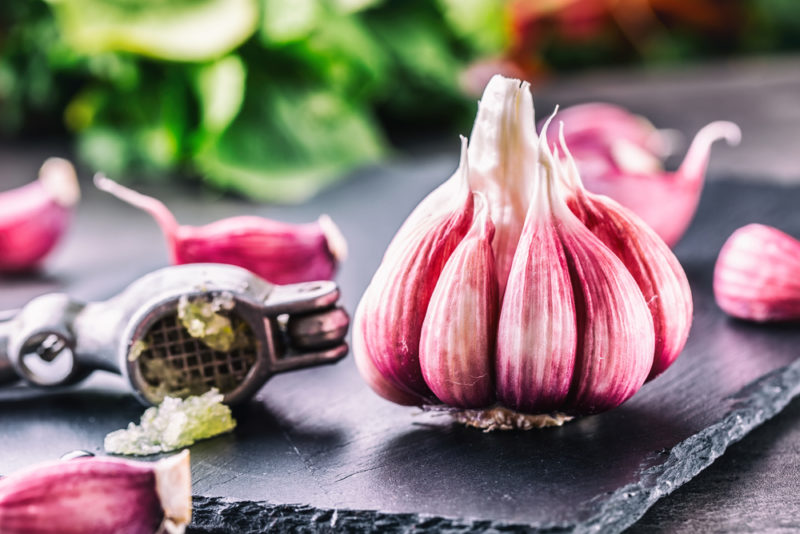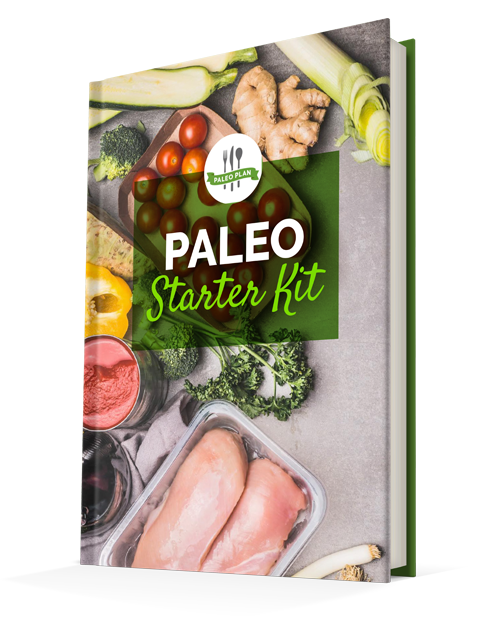
It begins as a tickle in your throat midway through your workday. You shrug it off, thinking it might be something in the air. However, by the time you get home that night, the coughs have started and your throat is starting to ache.
Most of us have experienced the symptoms of a sore throat and cough for any number of reasons. While your first instinct might be to reach for an over-the-counter medicine or prescription, you might want to reconsider.
12 Natural Ways to Soothe Sore Throats and Coughs
Several natural options are available for clearing your symptoms quickly, many of which have been around for centuries. Modern research now proves that their potency is anything but folk tales. In fact, some of these herbs and foods have even been shown to be effective against antibiotic-resistant strains of bacteria and viruses.
1. Salt Water
When you were younger, you may remember your mother or grandmother telling you to gargle with salt water to ease your sore throat pain. It turns out this folk remedy has some science behind it: salt, or sodium chloride, actually contains potent antibacterial properties that can help kill bacteria taking up residence in your throat. (1) These antibacterial properties are also the reason why salt was often used to cure meats before the invention of refrigeration.
To gargle with salt water, simply place warm water in a mug and stir in a couple teaspoons of sea salt until it dissolves. Gargle for at least 60 seconds, then spit it out. Repeat as needed.
2. Raw Honey
Raw honey is a master when it comes to killing even the strongest bacteria (think salmonella and E. coli) while also reducing inflammation. (2) When you have a sore throat, not only is the area housing bacteria, but it is probably swollen and painful. Both of these symptoms are soothed by raw honey.
In addition, honey also contains a wide range of antioxidants and beneficial enzymes that help strengthen your immune system and reduce inflammation, which will help you heal faster.
To use raw honey for a sore throat, you can either eat a tablespoon straight, mix it with a little warm water with lemon, or add it to warm tea (not piping hot though, or else you’ll destroy delicate enzymes).
3. Garlic

If you love garlic, you’re already on a delicious path to soothing your sore throat. Freshly crushed garlic contains a substance called allicin that has many antibacterial and antiviral properties. These properties are so potent, in fact, that garlic has even been found to be effective against multi-drug resistant E. coli. (3)
To use raw garlic for a sore throat, crush a garlic clove and mix it with a little water, then swallow it quickly (it won’t taste good, but it’s worth it). Otherwise, add garlic to your foods throughout the day.
4. Bone Broth
Usually when your throat is sore, eating solids can be painful. Luckily, not only is bone broth packed with minerals and nutrients to support your immune system, it has also been shown in studies to reduce inflammation in the respiratory system. (4)
For best results, whip up a bone stock yourself as soon as you feel symptoms of a sore throat or cough coming on, since bones need to simmer for around 12 to 24 hours to extract their nutrients. If you need a broth sooner rather than later, pick up one of the pre-packaged versions at your local health food store, just make sure it’s true bone broth and not just stock, and that it contains no colorings, added chemicals, or flavors.
5. Licorice Root
The active component of licorice root, glycyrrhizin, contains properties that help get rid of excess mucus, which can shorten the duration of coughs. (5) In addition, licorice root is also antiviral, antibacterial, and contains numerous antioxidants to support the immune system. (6)
You can find licorice root as a tea, or take it in capsule form.
6. Hot Water with Lemon
Interestingly, simply drinking hot water can help ease a sore throat and coughing. Studies have found that hot drinks provide immediate relief of some cold symptoms, and can keep them at bay. (7) By adding lemon to hot water or tea, you add a dose of antibacterial and antiviral properties as well. (8)
7. Vitamin C

Vitamin C is the quintessential supplement many people reach for when they’re experiencing cold symptoms. Research supports this, showing that vitamin C enhances immune function by protecting cells from the damaging effects of inflammation, and by increasing the activity of natural killer cells. In addition, multiple studies have shown that vitamin C shortens the duration of respiratory tract infections, while also reducing the incidence of pneumonia and diarrhea. (9)
To use vitamin C for a sore throat and cough, take a supplement liberally. Since vitamin C is water-soluble, any excess that you don’t need will flush out of your system. To boost its effect, add zinc, following the recommended instructions on the bottle.
Complement your supplement with vitamin C-rich fruits and veggies like berries and citrus.
8. Zinc
Zinc is another excellent supplement to take for a sore throat and cough. Not only does it boost your immune system and have antiviral properties, but also has the unique ability to attach to bacteria and viruses in your nasal passage to reduce cold symptoms. (10)
9. Probiotics
Probiotics might not be the first thing that comes to mind when it comes to soothing a sore throat, but research suggests they might help reduce symptoms while also preventing future infections. Studies have shown probiotic supplementation reduces the incidence and symptoms of respiratory infections, as well as their incidence. (12)
To get a good dose of probiotics, it’s best to purchase a supplement containing at least a billion organisms. You can also round this out by consuming fermented foods like sauerkraut, coconut yogurt, and kimchi.
10. Pineapple

Pineapple might not be the most commonly sought out food for sore throats, but it contains bromelain, an enzyme that is typically used in digestive aid products. Interestingly, bromelain has also been shown to thin mucus and reduce inflammation—both of which can be present when your throat is sore and you’re coughing. (13)
11. Peppermint
Menthol, the main component in peppermint, has been shown to effectively reduce congestion, which can cause coughing, and can also reduce inflammation in airways. (14) As a bonus, peppermint has also been found to be a strong antimicrobial, especially when it comes to oral pathogens. (15)
To reap the benefits of peppermint, consume peppermint tea, or make a steam using peppermint essential oil simmered in water. Simply drop a towel over your head and lower your face toward the steam, inhaling deeply for several minutes.
12. Thyme Tea
Like peppermint, the herb thyme, commonly used as a seasoning, has been shown to fight against oral bacteria that can contribute to sore throat and cough. (16) In addition, studies have also shown that thyme helps reduce coughing fits in bronchitis sufferers. (17)
Brew a thyme tea to ease coughing by adding two teaspoons of crushed thyme leaves to a cup of boiling water. Cover, let it steep for 10 minutes, then strain and drink as needed.
Bottom Line

Many of these natural remedies for sore throats and coughs have been around for centuries, and for good reason: they get the job done when it comes to relief. While you should see a doctor if you experience a prolonged fever or other major symptoms, these remedies work in a pinch for healing naturally without reaching for antibiotics.
